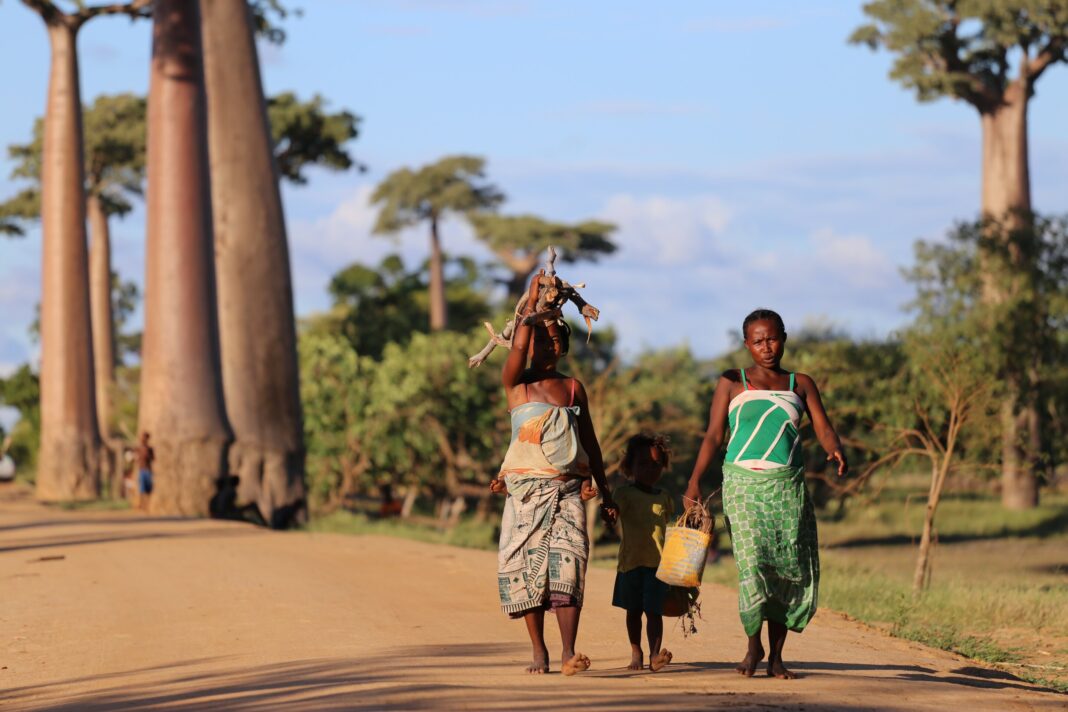In recent years, the term “eldest daughter syndrome” has gained traction on social media, as many firstborn daughters share how they had to grow up faster. They often took on caregiving and supportive roles in their families.
In high-income countries, research shows that these responsibilities often bring long-term benefits. Firstborn daughters—and sons—tend to have higher educational attainment and stronger cognitive skills. They also enjoy better job prospects and salaries.
Some studies in low- and middle-income countries have found similar positive effects of being the eldest. But others have found the opposite.
In low-income contexts, economic constraints, cultural practices—such as the involvement of extended families in child-rearing—and inheritance norms may produce very different effects.
Our research brings new insights by examining these dynamics in Madagascar. It is one of the world’s poorest countries. Birth order there strongly shapes the transition to adulthood, especially for firstborn children.
Progress in understanding birth order effects in low-income countries is held back by the lack of detailed, sibling-level data. Our study used a dataset that followed individuals from the ages of 10 to 22, capturing their transition from adolescence to adulthood. It collected detailed information on education, work, health, marriage, and migration. The dataset also captured key demographic and educational details for all living full siblings of each respondent.
We found that firstborns in Madagascar transition into adulthood earlier than their younger siblings. They are more likely to leave school early. They enter the workforce sooner and marry at younger ages. For example, fourth-born children are 1.5 percentage points less likely than firstborns to have never attended school, and 1.1 percentage points more likely to complete post-secondary education. Or, third-borns are 23% less likely to marry at age 19 than firstborns.
Our findings suggest that later-born children benefit from greater parental investment in education. This leads to better schooling outcomes and delayed entry into the labor market.
Birth order and the transition to adulthood
In Madagascar, early marriage can be a way for families to ease financial pressure. This is especially true since daughters typically join their husband’s household.
When it comes to marriage, we find that later-born children are less likely to marry early than their firstborn siblings—especially after age 17. This trend holds for both boys and girls. The difference appears earlier for girls, which aligns with their younger average age at marriage.
Interestingly, second-born girls are not significantly less likely to marry than their older sisters. This suggests that the eldest daughter does not always bear the full brunt of early marriage risk. Firstborn daughters often take on caregiving and household roles. These responsibilities may delay their marriage slightly, as families rely on them for day-to-day support.
What explains these birth order effects?
We did not observe significant differences in cognitive skills (like reasoning) or non-cognitive traits (like personality) between firstborns and their younger siblings. Cognitive abilities were assessed through oral and written math and French tests administered at home. These findings contrast with evidence from wealthier countries, where firstborns often outperform their siblings in both cognitive and non-cognitive domains. This may result from greater early parental investment.
In Madagascar, child development may rely less on direct parental input and more on interactions within the extended family. This is consistent with the concept of fihavanana, a cultural principle that emphasizes solidarity and mutual support within the extended family. Rather than benefiting mostly from parental quality time, children—especially later-borns—may develop their cognitive and non-cognitive skills through broader social networks. These include relatives and older siblings.
We also explored whether gender preferences might help explain the differences in outcomes. For instance, if later-born children were disproportionately boys, it could suggest that parents continued having children in hopes of having a son. This could lead to more resources being allocated to that later-born boy. However, our data show an even distribution of boys and girls among later-born children. This suggests that gender-based stopping rules are unlikely to explain the patterns we observe.
Instead, our findings point to economic constraints as the main driver for firstborns transitioning into adulthood earlier than their younger siblings.
In poorer households, particularly in rural areas, firstborn children are often asked to help out financially. This often comes at the cost of their own education. Later-born children, by contrast, receive more investment in their schooling. This may compensate for their limited access to other resources, such as land.
We find no birth order advantage in wealthier households or among families where parents have some education. This again highlights poverty as a key factor shaping these patterns.
The double burden of being firstborn
To sum up, our research shows that, in Madagascar, both male and female firstborns face an earlier transition into adulthood. They leave school and enter the labor market sooner. They marry earlier, although firstborn girls may be at slightly lower risk of early marriage than their younger sisters.
This suggests that, in poor countries, the eldest daughter syndrome is not just about emotional and care-giving responsibilities. It may also come with fewer educational opportunities, greater economic pressure, and an earlier end to childhood. A true double burden for disadvantaged girls. Economic constraints within households largely explain this pattern.
But the story is not only one of constraint. The absence of differences in cognitive and non-cognitive skills suggests that broader community ties, rooted in fihavanana and extended kinship networks, help cushion the impact of early responsibility. These collective structures may not erase inequality, but they offer a vital source of resilience.
As policymakers and practitioners look for ways to promote educational equity, it’s worth remembering that some of the most overlooked trade-offs happen within households. Reducing the weight of those trade-offs—through financial support, community-based programs, or school retention efforts—could help ensure that the future of one child doesn’t come at the expense of another.
Provided by
The Conversation
This article is republished from The Conversation under a Creative Commons license. Read the original article.![]()
Citation:
Eldest daughters often carry the heaviest burdens: Insights from Madagascar (2025, May 21)
retrieved 21 May 2025
from https://phys.org/news/2025-05-eldest-daughters-heaviest-burdens-insights.html
This document is subject to copyright. Apart from any fair dealing for the purpose of private study or research, no
part may be reproduced without the written permission. The content is provided for information purposes only.





